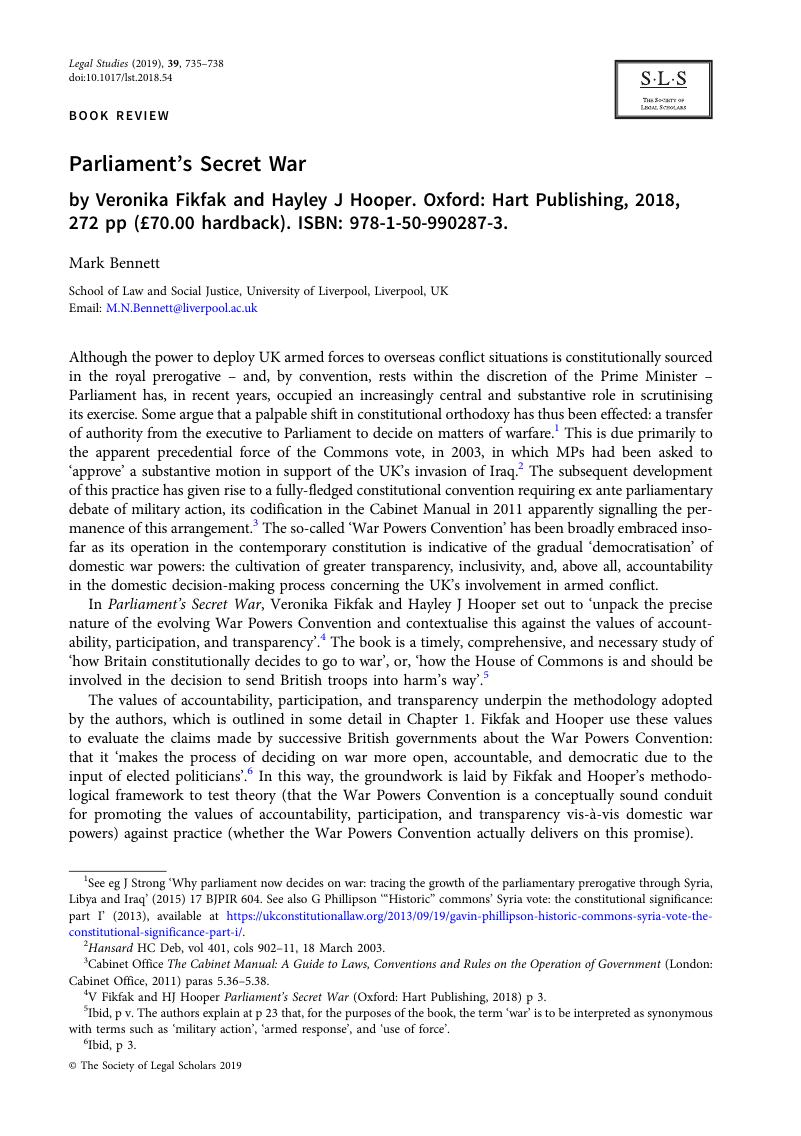No CrossRef data available.
Published online by Cambridge University Press: 09 July 2019

1 See eg Strong, J ‘Why parliament now decides on war: tracing the growth of the parliamentary prerogative through Syria, Libya and Iraq’ (2015) 17 BJPIR 604Google Scholar. See also G Phillipson ‘“Historic” commons’ Syria vote: the constitutional significance: part I’ (2013), available at https://ukconstitutionallaw.org/2013/09/19/gavin-phillipson-historic-commons-syria-vote-the-constitutional-significance-part-i/.
2 Hansard HC Deb, vol 401, cols 902–11, 18 March 2003.
3 Cabinet Office The Cabinet Manual: A Guide to Laws, Conventions and Rules on the Operation of Government (London: Cabinet Office, 2011) paras 5.36–5.38Google Scholar.
4 Fikfak, V and Hooper, HJ Parliament's Secret War (Oxford: Hart Publishing, 2018) p 3Google Scholar.
5 Ibid, p v. The authors explain at p 23 that, for the purposes of the book, the term ‘war’ is to be interpreted as synonymous with terms such as ‘military action’, ‘armed response’, and ‘use of force’.
6 Ibid, p 3.
7 Ibid, pp 22–23.
8 Griffith, JAG ‘The political constitution’ (1979) 42 MLR 1 at 19CrossRefGoogle Scholar.
9 Parliament's Secret War, above n 4, p 22.
10 See eg Griffith, above n 8, at 16.
11 Parliament's Secret War, above n 4, p 65.
12 Ibid, p 106.
13 Ibid, p 103.
14 Ibid, p 137.
15 Ibid, p 137.
16 Ibid, p 146.
17 Ibid, p 151.
18 Ibid, p 138.
19 Ibid, p 175.
20 Ibid, p 148.
21 Ibid, pp 141–146.
22 Ibid, p 141.
23 Griffith, above n 8, at 16.
24 Parliament's Secret War, above n 4, p 187 (emphasis added).
25 See eg Tomkins, A ‘What's left of the political constitution?’ (2013) 14 German Law Journal 2275CrossRefGoogle Scholar.
26 Parliament's Secret War, above n 4, p v.